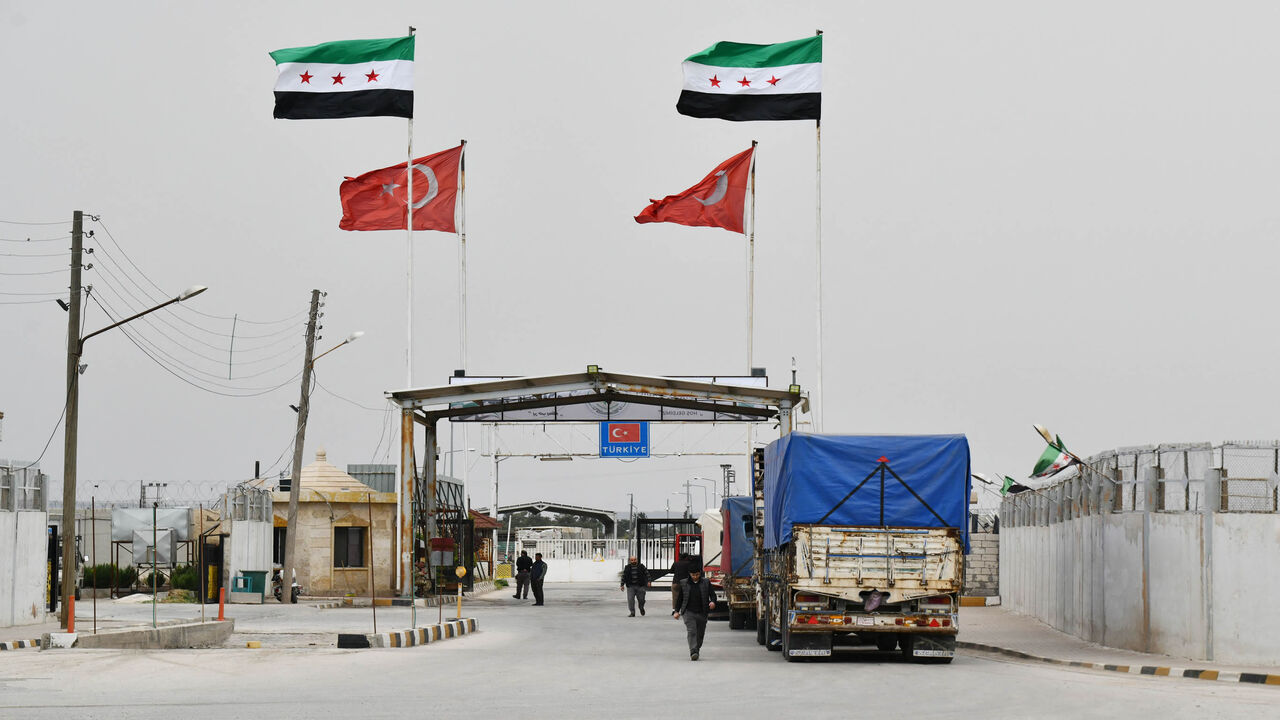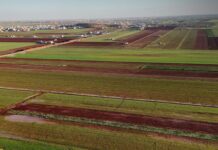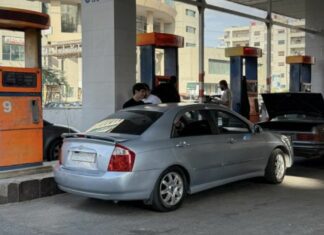
The Levant Front, a prominent faction in the Syrian National Army (SNA), has called for the dissolution of the government of Prime Minister Abdulrahman Mustafa of the Syrian Interim Government (SIG) following a high-stakes meeting in southern Turkey that exposed growing tensions within Syria’s revolutionary groups. The Levant Front announced it would “freeze all cooperation with the government of Prime Minister Abdulrahman Mustafa,” citing “hostile actions” and accusations directed at revolutionary factions during Tuesday’s meeting.
In a statement released Wednesday, the Levant Front accused Mustafa of engaging in a slander campaign against various factions, including their own. The group further alleged that Mustafa attempted to portray their activities and those of other revolutionary groups as acts of sabotage and terrorism, framing them in a negative light to Turkish officials.
The announcement follows a meeting on Tuesday at Gaziantep Airport, organized by Turkish authorities. The meeting brought together representatives from the SIG, the Syrian National Coalition (SNC), the Negotiating Body, the Council of Tribes and Clans, and leaders of the SNA. The purpose of the meeting was to address pressing issues facing the Syrian revolution, including political developments in northern Syria.
Although the Levant Front praised the meeting for promoting cooperation between Syrian revolutionary factions and the Turkish state, tensions escalated due to Mustafa’s alleged actions. According to the Levant Front, Mustafa insulted several Eastern factions within the revolution, accusing them of “collaborating with enemies” and engaging in “terrorism.” The group claims that Mustafa also singled them out with “a torrent of political and criminal slander,” threatening to undermine their legitimacy.
The Levant Front condemned Mustafa for allegedly attempting to incite Turkish officials against revolutionary factions, comparing his actions to those of the Assad regime. The statement criticized Mustafa’s portrayal of the peaceful popular movement in the city of Azaz as a sabotage plot.
In light of these developments, the Levant Front called for an emergency meeting of the Syrian Opposition Coalition to withdraw confidence from Mustafa’s government and refer him to the judiciary. The group stated it would not resume cooperation with the SIG until a new, “just” government is formed, one that better “represents the Syrian revolution and the will of its people.”
“The government derives its legitimacy from its patient people and its revolutionary factions, and it must work to achieve their demands and defend them,” the Levant Front said in its statement. “However, it (Mustafa’s SIG administration) has gone too far in accusing them of collaboration and sabotage, and even inciting against them.”
The Levant Front’s demand for Mustafa’s resignation marks a significant escalation in the internal disputes plaguing revolutionary groups. This internal rift comes at a critical time for Syria’s revolutionary forces, which have long been fragmented by competing interests and ideologies. The meeting in Gaziantep, held at the request of the Turkish government, was aimed at addressing these challenges, as well as discussing economic cooperation, including the controversial opening of the Abu al-Zandin crossing between SNA-controlled areas and those under the Assad regime.
Prime Minister Abdulrahman Mustafa, one of the key figures within the opposition’s political landscape, has faced previous allegations of political maneuvering to maintain power. He is part of an influential group known as the “G4,” which has been accused of using its control over opposition institutions to stifle dissent.
Mustafa’s alleged attempts to sideline the Levant Front could further destabilize the already tenuous alliance between the revolution’s political and military wings. The Levant Front, an influential faction within the SNA, has played a significant role in anti-Assad military campaigns and has close ties to Turkish forces in northern Syria.
As the Levant Front suspends cooperation with the SIG, the future of areas under its administration is uncertain. The Turkish government plays a key role in mediating the relationship between various groups, and its response will be crucial in shaping the next steps. For now, these factions face the dual challenge of addressing internal divisions while continuing to resist the Assad regime’s consolidation of power in Damascus.








